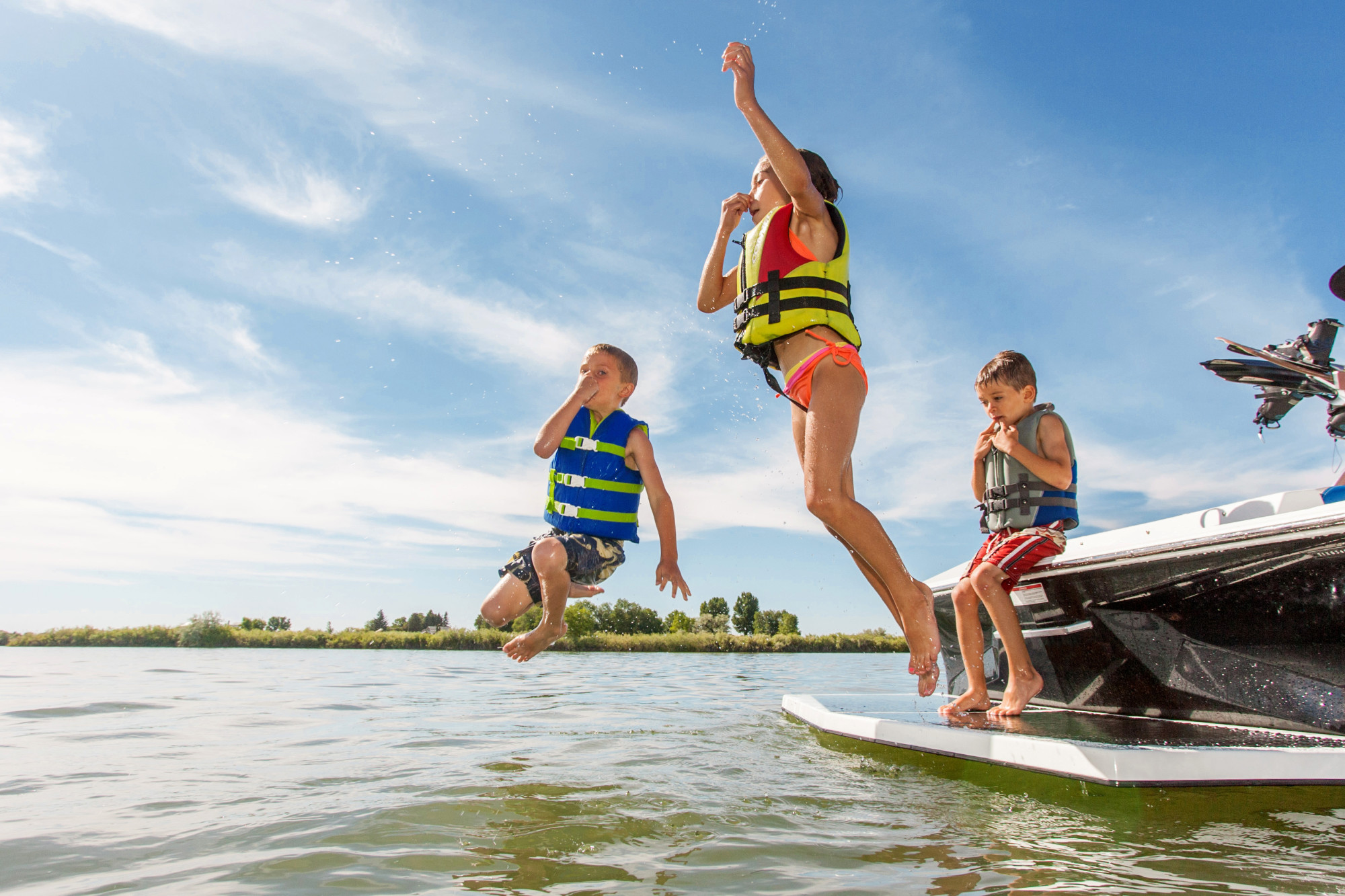Summer is the best season to go boating as it’s a precious commodity. The season is too long to spend cooped up indoors, so get out there and have fun!
Boating is still an activity that requires safety, even if you’re only out for an afternoon jaunt on the water. However, staying safe while on the water shouldn’t make the fun go away.
Need some help navigating through the top summer boat safety tips? Then read on.
1. Always Wear a Life Jacket
It is important when out on the water during the summer months to pay extra attention to safety on the boat. One of the main safety tips to be aware of is to always wear a life jacket.
Life jackets can save lives if an accident or tragedy happens by keeping the individual afloat in the water until help arrives. They have to be the right size and fit properly and securely around the body, over the chest, and chin. Children should also be made to wear life jackets, no matter their age or swimming level.
It’s essential to have plenty of life jackets available on the boat in case anyone falls overboard. Boat safety should never be taken lightly, and always wearing a life jacket when out on the water is an essential step in staying safe.
2. Avoid Drinking
Avoiding drinking is one of the most important ways for safe boating. Alcohol slows reaction time, impairs judgment, and diminishes motor coordination, making tragedies more likely to occur.
Check all passengers for alcohol before the boat is even started and ensure that all on board the boat are aware that alcohol will not be tolerated. Further, educate passengers and crew on the dangers of drinking while on the water. Finally, if you have experienced a boating accident due to the negligence of another boater, contact an experienced boating accident lawyer for legal advice and aid.
3. Get Informed About the Weather
Always check the forecast before leaving on any trip and keep up with radio updates while you’re out on the water. A sudden summer storm can cause hazardous conditions. Strong winds can result in large waves and sudden drops in temperature, which can lead to hypothermia.
Summer storms can also bring lightning and other electrical activity, which can be dangerous and even deadly. Make sure to check for potential storms and for any other potential hazards. Finally, make sure to check your equipment and vessels regularly. A thorough inspection of any other safety equipment is essential before leaving on any trip.
4. Carry VHF Radio and GPS
VHF Radio is a powerful communication device that will allow you to call for help if a situation. It has a range of up to 30 nautical miles, allowing users to stay in contact with people on shore and with other boats.
A GPS will give you the correct navigation data and help you to stay safe while out on the water. Both devices have the necessary coverage should you need help while out in open water. Before you set sail, make sure that you familiarize yourself with the operations of both the radio and GPS for successful usage in an emergency.
5. Inspect a Boat for Proper Maintenance
Proper maintenance of a boat is an essential step to staying safe while out on the water. Before embarking on any boat ride, it is important to inspect a boat for any potential safety issues. These may include visual assessments of the boat’s handrails, wiring, engines, fuel systems, and exhaust systems, as well as a test of the boat’s electrical system.
Also, make sure to replace old fuel and oil filters, inspect and replace any worn or damaged parts (you may need to find a replacement 316ss Socket Cap Screw, or a couple), and replenish any consumable liquids like fuel and lubricants that may have gone down. Then, make sure to regularly check the boat’s structural integrity.
Any dingy, paint, or caulking should also be checked. By regularly checking these important components, boat owners will help for the safety of themselves and those boarding the boat.
6. Avoid Excessive Speeds
Speeding can be dangerous for both the operator and other vessels in the area. Wet surfaces are often slippery, and traveling at a high speed can result in loss of control while suddenly turning the wheel or shifting the gears. Winds, currents, and waves can also impair the vessel, leading to unstable and dangerous boating.
Also, keeping a low speed helps to avoid obstacles such as anchoring cables and swimming swimmers. To prevent water pollution by emissions and leaving a trace on the environment, it is recommended to reduce the speed at least close to the harbor area. Taking these safety tips into consideration, boating can be done with more fun and awareness.
7. Do Not Overload the Boat
Everyone should make sure that the boat does not exceed its manufacturer’s recommendations for capacity, both for the number of people it can safely carry and for the total amount of weight it can safely hold. It’s no fun to leave friends behind, but it is vital to focus on the safety of all passengers when on the water.
Make sure to plan for each trip, pay attention to the capacity plate, and consider the size, weight, and number of passengers. Knowing your capacity limits will help you for the greatest safety while on the water.
8. Have Flares on Board
Flares are used to alert other boats of your presence, and their bright light can bring attention to any alarm you may raise. Flare guns or rockets may be used to signal distress or simply to bring other boats closer than normal to see what the issue may be. Also, flares can be used as a source of light if there is darkness or a power outage.
It is important that your flares are up to date and meet safety requirements to work as they are intended. Always check the end dates when buying and stocking your boat with flares so that they can be used when needed.
Finally, flares come in different types, including handheld, rocket, and larger multi-star, so choose one that is best for your boat. Safety comes first, so make sure flares are on board before heading out on the water this summer!
9. Keep an Eye Out for Obstacles
When out in open water, it is important to always keep an eye out for any potential obstacles. Rocks, stumps, and logs could cause serious damage if not seen in time. Also, shallow areas and sandbars can sneak up quickly and should be avoided.
Other objects such as buoys, markers, and other boats could also present a hazard, so staying alert while boating is a must. Being mindful of potential obstacles can help make your summer boat ride a safe one.
10. Bring Along a First-Aid Kit and Basic Tools
A first aid kit and basic tools should always be brought on board your boat when going out on the water. Properly stocked first aid kits should include items such as gauze, band-aids, aspirin, antiseptic wipes, and antibacterial ointment to treat minor injuries or illnesses.
Basic repair tools should consist of a combination of items such as a wrench, screwdriver, pliers, and wire cutters. This is important to make quick work of minor repairs and adjustments needed to keep your boat and equipment running smoothly.
Be sure the onboard firefighting equipment is in working order, as well as the life vest, whistle or sound device, and flashlights. Moreover, keeping a set of shears on board is always a sound idea for those times when a rope, rope splices, or nets have to be cut.
Boats are equipped with communication systems, but you should also carry a cell phone, if possible, for emergency use. Also, make sure all navigation lights are in proper working order before heading out.
Finally, educate yourself on the boating laws and regulations. Practice drills such as man overboard and take courses to further develop your boating skills. Have a plan and have a designated captain.
Essential Steps to Preparing Your Summer Boat
By following these 10 Summer Boat Safety Tips, you can enjoy a fun and safe summer on the water. Make sure you have the proper safety equipment and clothing, inspect your vessel and follow the safety rules of good seamanship.
Be prepared before you hit the water for a safe and enjoyable summer boating experience. Have a great and safe time out on the water this summer! Join a boating safety class today to learn more about boating safety and ensuring a fun, safe summer on the water!
For more informative articles on food, drink, health, and exercise, check out the rest of our blog.







